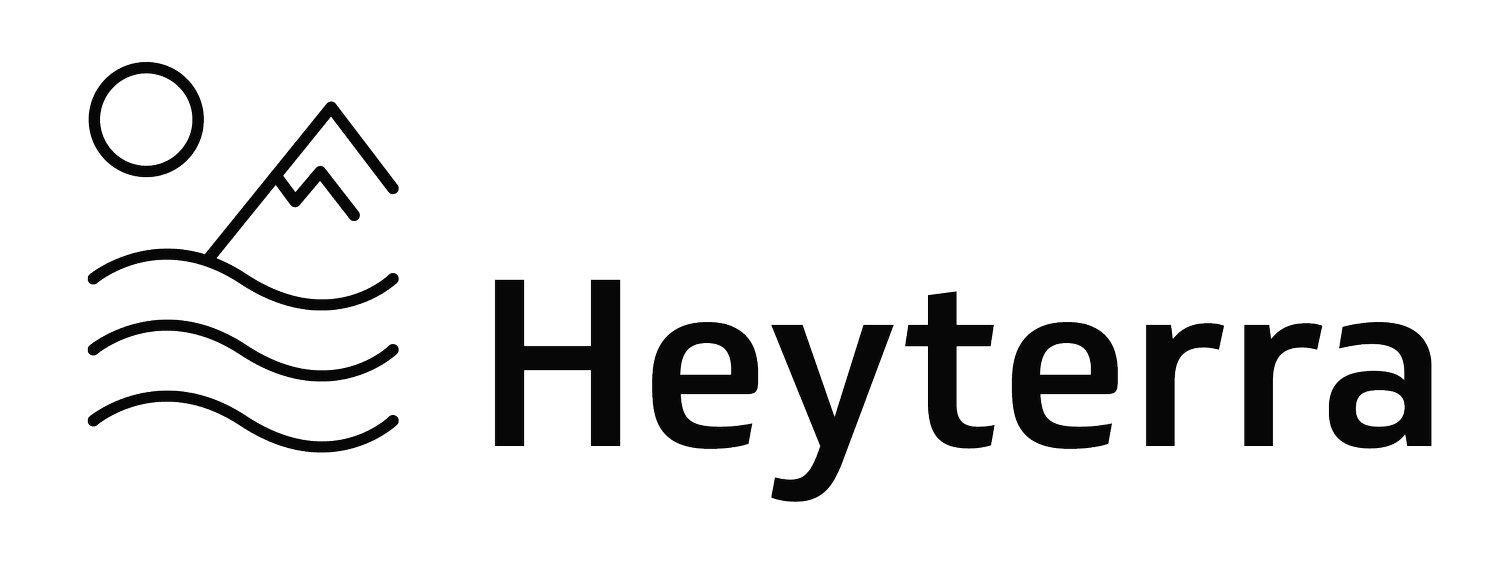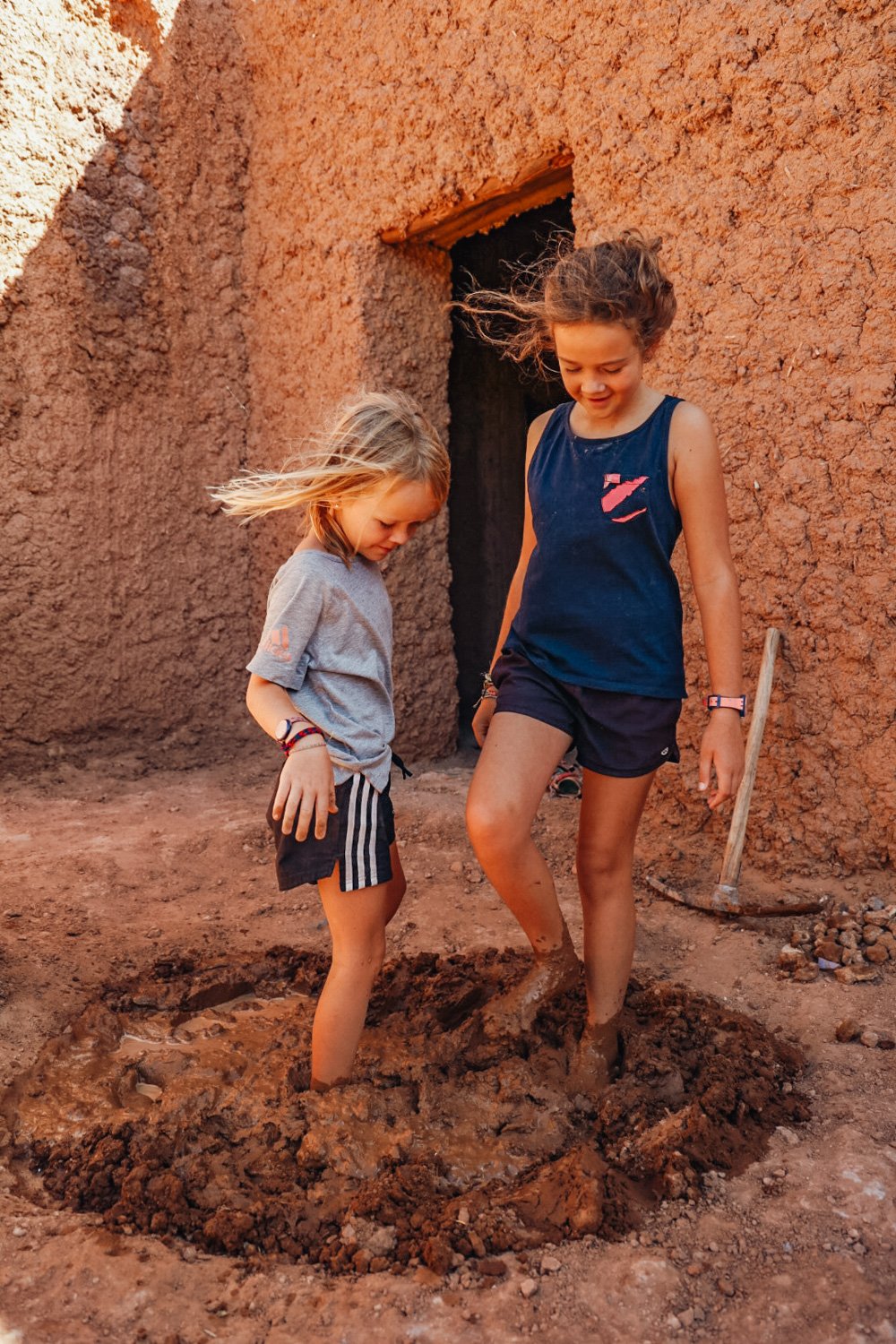A Work Exchange in Morocco with Kids
My Free Range Family uses work-and-homestay platforms to fuel their full-time travels and instill global citizenship— both in themselves and the communities they stay with.
All photos by My Free Range Family.
It’s not often that a photo of a rare Dragon Blood tree passes through the Instagram channels, but that’s how I first became friends with Sharon Ward.
The tree, a plant species found only on Socotra, an island archipelago off the coast of Yemen and close to Somalia, is unmistakable— it looks like an umbrella flipped inside out. Known as the “Galapagos of the Indian Ocean” with over 300 endemic species (meaning not found anywhere else in the world) I’d been lucky enough to visit Socotra a decade ago, and was curious as to how she was able to reach it safely (since 2014, Yemen has been debilitated by a proxy war and was almost impossible to access), how the ecosystem was doing, and did she bring the kids?
Sharon replied, describing some of the problems the trees were facing— climate change and goats, predominantly— and no, she didn’t bring the kids.
Since then we’ve struck up a virtual friendship and I’ve come to learn she’s lived more than a few lifetimes. It’s no wonder: growing up in Papua New Guinea and Honduras, living in Dubai and calling New Zealand home, she’s an explorer to the bone, and along with her husband Mike have passed a similar curiosity about the world down to their children.
Sharon gives great insight into her family’s travel style: worldschooling, affordable travel and cultural immersion through work exchange on their website My Free Range Family— all modes of family travel that were new to me but incredibly eye-opening to dive into.
Below, Sharon gives us a special glimpse of this particular adventure— living and working on a Berber farm in Morocco. If you ever considered a deep, reciprocal form of travel with your family (or simply wanting to have your mind blown), this is a must-read.
Beginnings
“Many years ago, at an education conference I was introduced to the term ‘free-range kids.’ It struck a chord. We’ve always been driven to live as sustainably and organically as possible, but also allowing our kids to be risk-takers and to find education in the world around them. This term free-range, just seemed to encompass it all. Suddenly, I had a name for the type of family we seek to be—My Free Range Family— it just kind of resonated and stuck with us.
Several years on, after working and living in the system, the Dubai system nonetheless, and we were ready for a brand new start!”
Traveling with Workaway & HelpX
Most importantly, we wanted our girls to be grounded after their Dubai start to life and so we made the decision to travel full-time as a family, but we didn’t want to blow our life-savings. So, when we began to research countries that we could visit on a budget, we also began to hear about travel work exchange platforms such as Workaway and HelpX. From that moment on, we had a plan.
Based on our research, our strategy for full-time world travel meant we would world school our two girls, while traveling to destinations that would provide free accommodation and food in exchange for a few hours work per day.
Over the last two years, this has provided us the opportunity to visit Australia, Spain and Morocco on a budget. And next up we’ll be living on an o-property in Mexico.
On Core Travel Values
You might think this sounds pretty limited. Two years of travel and we only list a handful of countries, but this is also actually due to one of our core travel values. Slow travel! We aim to visit a country for at least three months at a time.
As a result, our travel experiences are rich, meaningful and sustainable. Oh, and there’s another one of our travel values. The less time spent flying and being on the move, means using fewer of our precious planet’s resources. In other words, work exchange platforms help support our mission of slow and sustainable travel values.
Work Exchange in Morocco
Morocco was one of our more intrepid destinations to date. In 2020, through the HelpX platform we came across a farmer seeking help on his date farm near the Sahara. After a year of communication and Covid borders lifting, we finally arrived in June 2022.
Ahmed is Amazigh, the name given to one of the first nation groups from Morocco, or more commonly referred to as Berber. He lives a thirty-minute walk from a nearby small village, with his English partner Sophie and their young daughter. The conditions are challenging, the wells have dried up and it almost never rains. Consequently, water must be delivered by tanker to fill the farm tanks, which means that there’s no water for the date palms.
More recently, Ahmed purchased goats. He has fourteen in total and they live in the house, in a pen beside the kitchen. Our kids were thrilled when during our stay two baby kids were born, one black and one white. And being the animal lovers that they are, our girls took the decision to name the new farm additions- Night and Day.
The Work – What Was Expected
In terms of the work, we made mud bricks and made mud plaster repairs to the walls and roof of Ahmed’s home. As I said, it doesn’t rain often, but when it does layers of the mud walls dissolve away. Therefore, once a year, normally during summer, the restoration process begins. So, for a few hours a day we assisted in this process, the kids getting involved at every opportunity.
We also helped prepare meals, such as tagines and salads and getting used limited ingredients was an adjustment. Forget big supermarkets, or even small supermarkets: the ingredients came from the bi-weekly market in town.
Our kids learned to eat what was put in front of them, without plates and cutlery. In a Moroccan home everyone eats with their hands, straight from the tagine dish. There was a real sense of togetherness and gratitude as we ate together each night.
Living on a Berber Farm in Morocco
Possibly one of the biggest challenges we faced were the summer creepy crawlies, which try to make their way inside. Yes, even the scorpions find it too hot in the desert like conditions in Morocco. Large scorpions and what we call camel spiders frequently came visiting during our stay.
Despite these unwelcome guests, we were happy and content. We had a bedroom with comfortable beds, we learnt to use squat toilets and to cope without furniture. Having a TV isn’t something we’ve ever really needed as a family, so not having a tele was a refreshing change. Consequently, we had ample time for family games, reading, and projects such as kite making or scorpion dissections!
Final Thoughts on Work Exchange in Morocco
I would be lying if I said this experience was easy— because it wasn’t. And I’d be exaggerating if I said we absolutely loved it— it was really tough at times.
But ask me if it’s the kind of experience that we’ll remember forever, one where we learned more about ourselves as well as another country and culture? Then one hundred and ten percent, YES we did!
Keep in Touch
Meet more of our Heyterra travel moms.
Learn more about Workaway and Help X work exchange and homestay programs.











